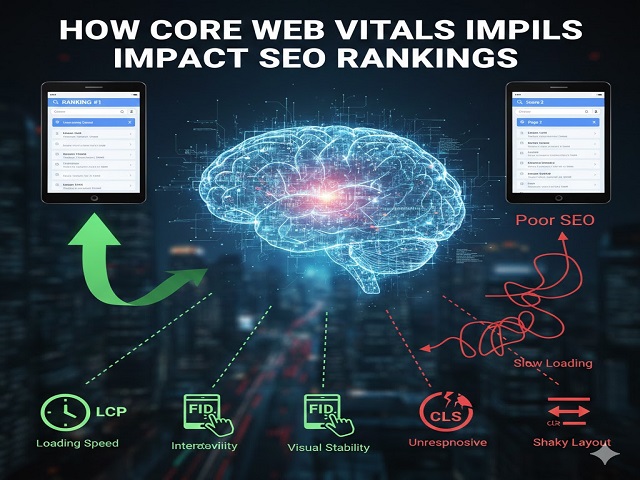Content is frequently crowned as king. But why is content so important for search engine optimization? It is more than just words on a page; it’s an essential component that determines how visible, engaging, and search engine-friendly your website is. Effective content doesn’t just attract visitors; it keeps them engaged, encourages them to interact with your site, and builds a foundation of trust and authority.
A strategic approach to content creation combined with a deep understanding of SEO principles are necessary to create content that appeals to search engines as well as users. Read this blog to understand the role of content in SEO, illustrating how to create content that not only engages but also ranks.
The Foundation: Understanding Content’s Impact on SEO
How Content Affects Search Engine Rankings
Google and other search engines aim to provide users with the most relevant results possible. They use an advanced algorithm that considers many variables to accomplish this. The relevance and caliber of the content are two important considerations. Providing insightful content that answers users’ questions is just as important as incorporating keywords into your writing.
It’s important that the content is relevant. Search engines are more likely to rank your content higher if it corresponds with users’ search intent. For example, increasing the visibility of your website can be accomplished with a well-researched blog post that addresses queries about your sector. The level of engagement with your content is also indicated by metrics like time on page and bounce rate. Search engines prefer material that keeps users interested and entices them to explore more.
Quality vs. Quantity in Content
Quality frequently dominates quantity in SEO. A few poorly written pieces of content cannot have the same impact as an excellent one. An SEO marketing company’s experience can come in very handy in requirements like these. They can help you create content that is readable and credible in addition to being relevant.
A blog post that covers a subject in great detail and offers thorough solutions, for instance, is probably going to be more helpful to readers and search engines than one that skims the surface. Backlinks from high-quality content are more likely to be received, which raises the authority and ranking of your website
Crafting SEO-Friendly Content: The Art and Science
Understanding Your Audience
Creating content that ranks begins with understanding your audience. What are their pain points? What questions do they frequently ask? Identifying these aspects will help you tailor your content to meet their needs. An SEO company can provide insights into audience behavior and preferences, ensuring your content aligns with what your target audience is searching for.
Tools like Google Analytics and keyword research tools can reveal valuable data about what terms your audience is using and how they interact with your content. This information allows you to create content that not only resonates with your audience but also ranks well in search results.
Keyword Research and Integration
Keywords are the bridge between what people are searching for and the content you are providing. Effective keyword research helps you identify the terms your audience uses to find information related to your business. Incorporating these keywords naturally into your content is crucial.
However, keyword stuffing can be detrimental. Instead, focus on integrating keywords in a way that enhances the readability and value of your content. An SEO company can assist with this process, ensuring that your content is optimized without compromising quality.
Content Structure and Optimization
A well-structured piece of content is easier for search engines to index and for users to navigate. Use headers to break up your content into digestible sections, making it easier to read. Meta descriptions and title tags should also be optimized to include relevant keywords. These elements not only help with SEO but also improve the user experience by providing a clear overview of what your content offers.
Types of Content That Boost SEO
Blog Posts and Articles
Blog posts are a powerful tool for driving organic traffic and improving SEO. They allow you to delve into topics relevant to your audience, providing valuable insights and information. By consistently publishing high-quality blog posts, you can establish your site as an authoritative source in your industry.
Incorporating internal links to other relevant content on your site can also enhance SEO. External links to authoritative sources can further boost your credibility. An SEO services provider can guide you in creating and optimizing blog content that attracts and retains visitors.
Infographics and Visual Content
Visual content such as infographics can make complex information more accessible and engaging. Infographics not only attract attention but also encourage sharing, which can increase traffic and backlinks to your site. Proper optimization of visuals, including alt text with relevant keywords, ensures that they contribute to your SEO efforts.
Videos and Interactive Content
Videos are an increasingly popular form of content that can significantly enhance user engagement. They provide a dynamic way to present information and can keep users on your site longer, which is a positive signal for search engines. Interactive content, such as quizzes or calculators, can also engage users and encourage them to spend more time on your site.
Technical Aspects of Content Optimization
On-Page SEO Techniques
On-page SEO involves optimizing individual pages on your website to rank higher and attract more relevant traffic. This includes optimizing title tags, meta descriptions, and header tags. Each of these elements should be carefully crafted to include relevant keywords and provide a clear and compelling description of the content.
Mobile-Friendliness and Page Speed
In today’s mobile-centric world, ensuring your content is accessible and performs well on mobile devices is essential. Mobile-friendliness and fast page load times are crucial factors in SEO. Content that loads quickly and is easily viewable on mobile devices enhances user experience and improves your search rankings.
Measuring Content Success
Analytics and Metrics
To determine the effectiveness of your content, it’s important to track key performance indicators (KPIs). Metrics such as organic traffic, bounce rate, and average time on page provide insights into how well your content is performing. Tools like Google Analytics and SEMrush offer valuable data that can guide your content strategy.
Adjusting Strategies Based on Performance
Regularly analyzing your content’s performance allows you to refine your strategy. If certain types of content are performing well, consider creating more of that content. Conversely, if some content isn’t meeting expectations, identify the issues and make necessary adjustments.
Conclusion
Optimizing for search engines, knowing your audience, and utilizing a variety of content formats are all necessary components of a strategic approach to content creation that ranks. Your site’s traffic and search engine rankings can be raised by concentrating on producing high-quality, relevant content and combined with efficient optimization strategies. The fundamentals of efficient content creation are the same whether you manage SEO internally or through an SEO marketing agency.
For more advice on enhancing your SEO efforts and content optimization, get in touch with Savit Interactive. If you want to survive the content-heavy market, think about making use of our SEO services, which provide 360-degree assistance.




